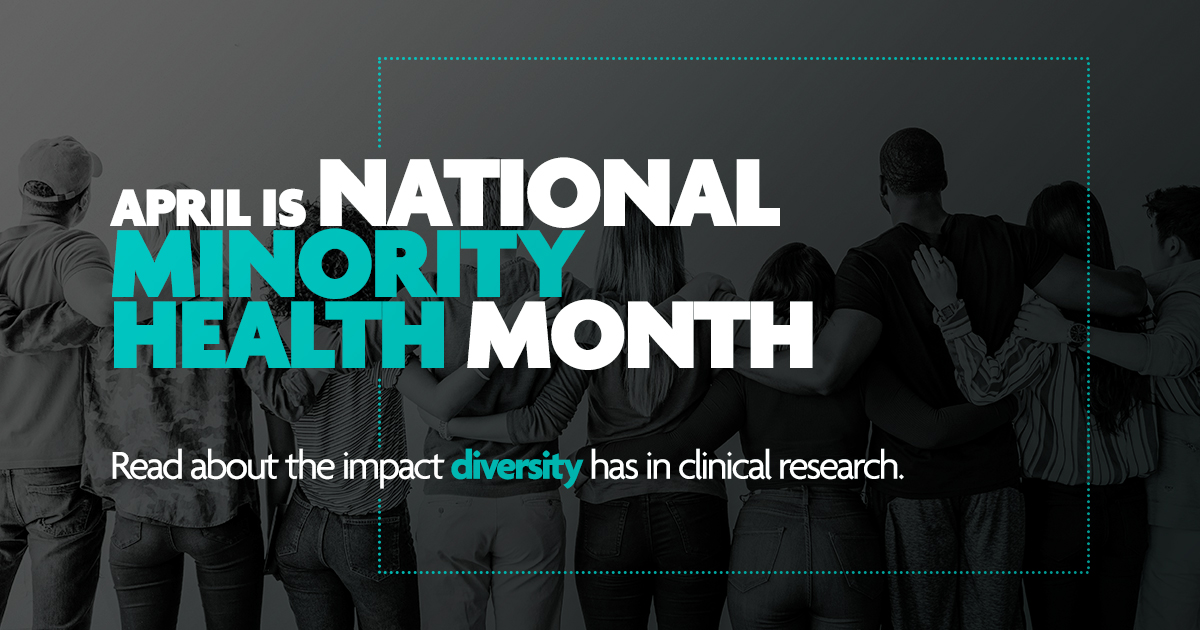April is National Minority Health Month! This annual observance raises awareness about the health disparities that persist among racial and ethnic minority populations and encourages everyone to take action to end these inequities.
This year’s theme, Be the Source for Better Health: Improving Health Outcomes Through Our Cultures, Communities, and Connections, is about understanding how the unique environments, cultures, histories, and circumstances of minority groups impact their overall health. The data show that racial and ethnic minority groups throughout the United States experience higher rates of illness and death across a wide range of health conditions, including diabetes, hypertension, obesity, asthma, and heart disease. When compared to their white counterparts. There is ample evidence that social factors, including education, employment status, income level, gender, and ethnicity, considerably influence how healthy a person is.
One area where these disparities are particularly evident is in clinical trials. Clinical trials are research studies that evaluate the safety and efficacy of new medical treatments. They are essential for developing new drugs, devices, and other therapies that can improve the health of all Americans. However, people from racial and ethnic minority groups are often underrepresented in clinical trials. Some barriers that these minority groups face against clinical trial participation include mistrust, lack of awareness, access to healthcare, cultural and language barriers, and financial burdens.
The underrepresentation of minority groups in clinical trials is a serious problem not only in the US but globally as well. We can only ensure new treatments are safe and effective for all populations with diverse participation.
Researchers can take several steps to increase minority participation in clinical trials. One important initiative is to build trust between researchers and minority communities. This can be accomplished by collaborating with community leaders and organizations to educate people about clinical trials and address their concerns.
Another critical step is to make clinical trials more accessible to minority groups. This can be achieved by offering trials at sites that are convenient for minority patients and by providing transportation and other support services.
Finally, it is essential to ensure that clinical trials are designed to include minority participants. This means recruiting minority patients from various settings and ensuring the study design is culturally appropriate. By taking these steps, we can increase the participation of minority groups in clinical trials and ensure that all Americans have access to safe and effective medical treatments.
At alsa Research, we are actively working to ensure that all our clinical studies reflect the diverse populations we serve. Through open dialogue, partnerships, and a commitment to raise awareness, we aim to remove misconceptions and systemic barriers and cultivate an environment where participation in clinical trials is a more positive experience. By embracing diversity, we are not only advancing medical science but rewriting a story of equity, one patient at a time.
alsa Research has two dedicated research facilities in Stamford and Bridgeport, CT. Since 1994, we have been committed to conducting the highest-quality clinical trials to develop, research, and approve new, safe, and effective medications for various medical conditions and diseases. Your participation matters. For more information and to pre-qualify as a participant in a future trial, visit alsaresearch.com.
